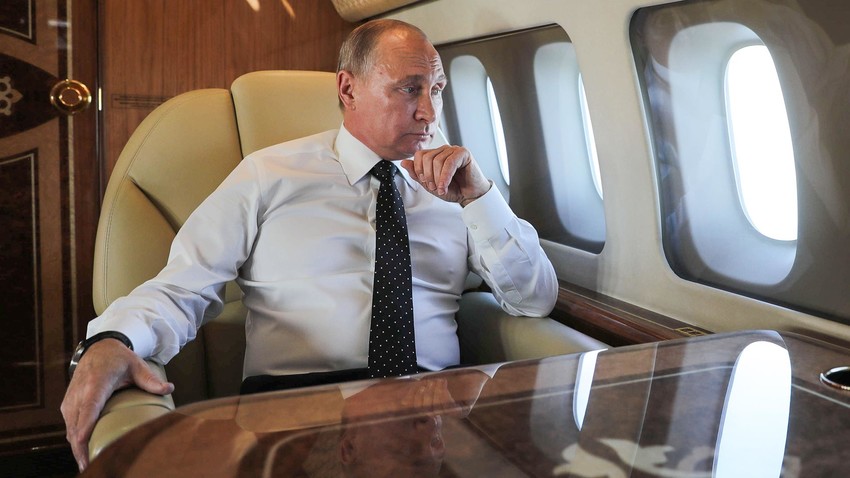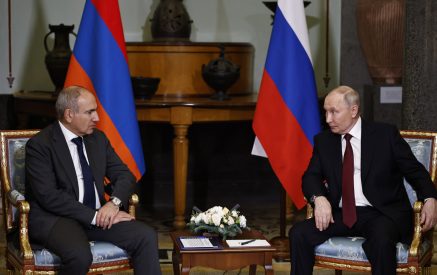The Council adopted today – in view of the second year mark of the beginning of Russia’s full-scale invasion of Ukraine – a thirteenth package of restrictive measures against Putin’s regime, those who are responsible for perpetuating his illegal, unprovoked and unjustified war of aggression and those who are significantly supporting it.
“As we reach the sad mark of two years since Vladimir Putin launched the full-scale invasion of Ukraine, the European Union keeps up the pressure on Russia. Today, we are further tightening the restrictive measures against Russia’s military and defence sector, targeting further entities in third countries who supply equipment as well as those responsible for the illegal deportation and military re-education of Ukrainian children.
We remain united in our determination to dent Russia’s war machine and help Ukraine win its legitimate fight for self-defense and restore its independence, territorial integrity and sovereignty.”
Josep Borrell, High Representative for Foreign Affairs and Security Policy
Today’s package includes the following measures:
Read also
Individual listings
The Council decided to impose restrictive measures on an additional 106 individuals and 88 entities responsible for actions undermining or threatening the territorial integrity, sovereignty and independence of Ukraine.
The new listings agreed today target primarily the military and defence sectors and associated individuals, including those involved in DPRK armament supply to Russia, as well as members of the judiciary, local politicians and people responsible for the illegal deportation and military re-education of Ukrainian children.
Altogether, EU restrictive measures in respect of actions undermining or threatening the territorial integrity, sovereignty and independence of Ukraine now apply to over 2000 individuals and entities altogether.
Those designated are subject to an asset freeze and EU citizens and companies are forbidden from making funds available to them. Natural persons are additionally subject to a travel ban, which prevents them from entering or transiting through EU territories.
Import-export controls and restrictions
The Council added 27 new entities to the list of those directly supporting Russia’s military and industrial complex in its war of aggression against Ukraine. They will be subject to tighter export restrictions concerning dual use goods and technologies, as well as goods and technology which might contribute to the technological enhancement of Russia’s defence and security sector. Some of these entities are located in third countries (India, Sri Lanka, China, Serbia, Kazakhstan, Thailand, and Türkiye) and have been involved in the circumvention of trade restrictions, others are Russian entities involved in the development, production and supply of electronic components for Russia’s military and industrial complex.
Furthermore, today’s decision expands the list of restricted items that could contribute to the technological enhancement of Russia’s defence and security sector by adding components for the development and production of unmanned aerial vehicles (UAV).
Lastly, the EU introduced further restrictions on exports of goods which contribute in particular to the enhancement of Russian industrial capabilities, such as electrical transformers.
Iron and steel
Today’s decision adds the United Kingdom to a list of partner countries which apply a set of restrictive measures on imports of iron and steel from Russia, and a set of import control measures that are substantially equivalent to those of the EU.
The relevant legal acts will soon be published in the Official Journal of the EU.
Background
On 14 and 15 December 2023, the European Council adopted conclusions in which it reiterated its resolute condemnation of Russia’s war of aggression against Ukraine, which constitutes a manifest violation of the Charter of the United Nations, and reaffirmed the EU’s unwavering support for Ukraine’s independence, sovereignty and territorial integrity within its internationally recognised borders and its inherent right of self-defence against Russia’s aggression.
The European Council also stated that Russia’s ability to wage its war of aggression must be further weakened, including by further strengthening sanctions, and through their full and effective implementation and the prevention of their circumvention, especially for high-risk goods, in close cooperation with partners and allies.
On 12 February 2024 the Council adopted a decision and a regulation clarifying the obligations of Central Securities Depositories (CSD) holding assets and reserves of the Central Bank of Russia (CBR) that are immobilised as consequence of EU’s restrictive measures.


























































